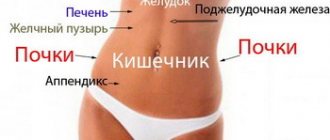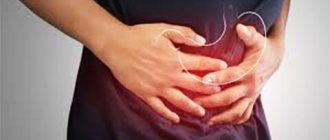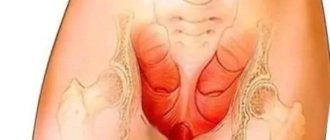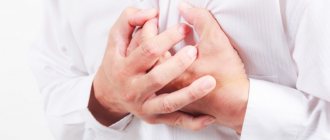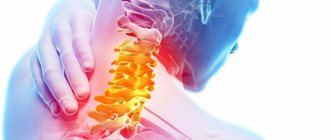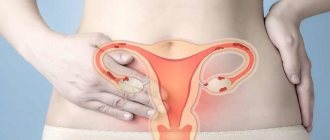What is stomach pain
In medicine, this symptom is called gastralgia - unpleasant sensations of a cramping or acute nature that are caused by gastric diseases, severe stress or the presence of pathologies of other internal organs. Pain of varying intensity and localization is often the main and only symptom of problems with the gastrointestinal tract. Such diseases, as a rule, are chronic: they progress slowly, and with development they cause an increase in symptoms.
Ulcer
Now let's look at the signs and symptoms of a stomach ulcer. Where does it hurt with this disease? A stomach ulcer is the next stage in the development of gastritis in the human body. If the latter ailment is not treated properly, the patient begins to develop an ulcer. Where does it hurt with a stomach ulcer? Since this disease is a consequence of gastritis, this suggests that the person is already accustomed to constant unpleasant sensations. Therefore, he may not pay attention to new ones. It is worth saying that pain with an ulcer is more severe. They occur immediately after food enters the stomach. A person should pay attention to the severity of the pain. In this case, it is recommended to consult a doctor as soon as possible for qualified help.
How does my stomach hurt?
Unpleasant sensations often occur under the left rib, and can sometimes radiate to the lower back, lower abdomen and heart area. In addition, the pain varies in the nature of its course - intense, cutting, pulling, dagger-like, cramping, stabbing. Depending on the cause of painful spasms, you may also notice the presence of other symptoms. The most common are:
- nausea with vomiting;
- belching of gastric juice;
- metallic taste in the mouth;
- heartburn;
- bowel dysfunction - diarrhea or constipation;
- weakness;
- heat;
- bloating;
- decrease in blood pressure.
Dyspepsia
Another cause of discomfort is dyspepsia. In this case, where does a person’s stomach hurt? This disease has another name, namely, nervous stomach. The pain with this pathology is spastic. In addition, the person begins to feel sick. He also does not want to eat, and there is a feeling that his stomach is full. The pain syndrome is located in the stomach area. But in fact, the cause of its occurrence comes from the pancreas. Therefore, taking painkillers does not have the desired effect. Painful sensations continue to bother the person.
Why does it hurt
Based on the intensity of pain attacks, doctors can judge the presence of a particular disease. For example, chronic gastritis is always accompanied by aching pain and heaviness that occurs after eating. Burning, unbearable pain indicates increased acidity and activity of hydrochloric acid of the mucous membranes. Constant acute pain syndrome usually occurs with acute pancreatitis, cholecystitis or colitis. Chronic ulcers are characterized by cramping attacks, and when the ulcer perforates, this syndrome develops into severe pain.
After meal
With almost 100% certainty, doctors can declare chronic or acute gastritis if sharp pain in the stomach appears after eating. For example, in the presence of an ulcer, such a symptom does not occur immediately, but half an hour after eating. Gastritis with high acidity is accompanied by heartburn, belching, and possible constipation. Low acidity is characterized by nausea, loss of appetite, rumbling in the stomach, and diarrhea. The causes of such inflammatory processes can be:
- smoking;
- eating spicy, salty or fatty foods;
- improper diet;
- nervous shock and frequent stress;
- physical exercise;
- alcohol abuse;
- taking certain types of medications.
Acute pain
It appears suddenly, like a strong spasm, passes just as quickly, and after a while returns with renewed vigor. It is almost impossible to independently determine the root cause, because the list of problems is very wide. Provokes the occurrence of such discomfort:
- poisoning of the body with toxins, poisons or chemicals;
- diseases of other internal organs - inflammatory processes, exacerbation of chronic pathology;
- infectious diseases;
- psychoemotional disorders;
- exacerbation of stomach ulcers;
- gastroenteritis;
- appendicitis;
- food poisoning;
- exacerbation of chronic gastrointestinal diseases;
- individual intolerance to certain types of foods.
Aching
A pressing sensation is a direct symptom of pyloric stenosis, and if the sensation increases over time, the gastroenterologist may suspect inflammation of the pancreas. In addition, polyps can cause aching and dull pain - a very rare occurrence. You can suspect its presence if pain occurs when pressing on the stomach, sometimes you experience nausea or vomiting of stomach contents.
Night stomach pain
There are no fewer reasons that provoke discomfort in adults during sleep, but almost all of them are associated with problems of the digestive tract or dysfunction of the stomach. These symptoms may occur due to:
- Increased acidity of gastric contents - as a rule, symptoms begin to appear in the morning.
- Diseases that worsen during the movement of internal organs. The lying position and constant rotation of the body during sleep change the position of the stomach, as a result of which it can put pressure on other internal organs.
- Slow peristalsis. It occurs due to the presence of toxins and chemicals and pathogenic microorganisms in the intestines.
Heaviness and pain
Such symptoms often occur in the presence of gastritis with low acidity. In addition to stomach pain after eating, the disease is accompanied by belching, heaviness, nausea, and bloating. These same signs may be associated with partial reflux of stomach acid into the esophagus and disruption of the sphincter. This condition is characterized by precise localization of pain in the epigastric region.
Pressing
This symptom is a frequent companion when overeating, especially if you eat at night. In addition, severe pain in the stomach can signal a violation of food digestion and a lack of liver enzymes, appear after excessive physical exertion, which is associated with severe overstrain of the muscles of the anterior abdominal wall. If the localization of the symptom is the upper part of the stomach, then the causes are tobacco or alcohol abuse.
Paroxysmal pain
Spasmodic symptoms may be caused by a viral or bacterial infection. This disease is called intestinal flu or viral gastroenteritis. This pathology is characterized by fever, diarrhea, and vomiting. Sometimes cramping attacks can be a side effect of sore throat, bronchitis or pneumonia. In this case, the discomfort goes away as soon as the patient gets rid of the underlying disease.
Permanent
Stomach cancer is one of the most dangerous diseases. The main signs are mild but constant pain in the stomach, which is in no way related to the time of day or food intake. The early appearance of the pathological process does not have any other pronounced symptoms other than dyspepsia and loss of appetite. In the later stages, when the tumor penetrates the lining of the stomach, the pain intensifies and is accompanied by other dangerous symptoms of damage to the mucous membrane: bleeding, vomiting with blood.
Before meals
For preliminary self-diagnosis, it is useful to know that if your stomach hurts before eating, then the cause probably lies in a duodenal ulcer. In this case, the symptom can occur both in the epigastric part and in the hypochondrium. About a third of patients have unpleasant sensations of minor intensity, the remaining patients may complain of excruciating unbearable pain. In addition, such attacks often occur at night - the so-called hunger pains.
Pain in the stomach and intestines
Can occur simultaneously for several reasons:
- Due to an infectious disease of the large intestine - colitis or transversitis. Symptoms of the disease are: rumbling or bloating, constant urge to go to the toilet, diarrhea containing mucus or blood.
- Irritable bowel syndrome . Accompanied by rare stools, the presence of mucus in feces, chronic fatigue, and migraines.
- Duodenitis is an inflammation of the small intestinal mucosa. This pathology is accompanied by nausea, vomiting, weakness, and elevated body temperature.
- How to lose weight with potassium permanganate
- How to top up PayPal
- Lettering for tattoos with translation
Nausea and pain
The simultaneous presence of such symptoms is sometimes the result of poisoning of the body with heavy metals, mercury, or exposure to alkalis or acids in the epigastric zone. By the nature of the manifestation of symptoms, this picture almost completely coincides with acute gastritis, but it also has its own differences, for example: general weakness, increased sweating, dizziness.
Hernias
Often abdominal pain is caused by peritoneal hernias. They can be umbilical, inguinal, diaphragmatic. Umbilical hernias are more often formed during pregnancy or in the postpartum period, inguinal hernias - with excessive stress, diaphragmatic hernias - defects of the abdominal wall that form as a reaction to improper bowel function, an incorrectly selected corset, or heavy lifting. The insidiousness of diaphragmatic hernias is that at the initial stage of the disease, a person believes that he has typical gastritis - with heartburn and belching, but traditional therapy does not provide treatment, and ultrasound shows that the cause is not inflammation of the stomach, but precisely the presence of a hernia. In toga, to combat pathology, it is not necessary to relieve inflammation or eliminate spasms, but to undergo surgical treatment, which is aimed at strengthening the abdominal wall.
Diseases of the gallbladder and bile ducts
A special group consists of diseases associated with the gallbladder and bile duct.
- Cholangitis . Inflammation of the bile ducts. The pain is unbearable. Mainly on the right side. It is complicated by the fact that it requires not only quick relief from the attack of pain itself, but also normalization of blood pressure.
- Cholecystitis . Acute pain due to eating fatty foods. Often the pain itself is followed by vomiting mixed with bile. Flatulence (gas formation) and vomiting may occur.
- Gallstone disease is the formation of hard structures – stones – in the bile. Pain in the disease is paroxysmal. Especially if the stones move through the gallbladder and ducts.
Diagnostics
If your stomach hurts, the first thing you should do is make an appointment with a gastroenterologist. At an appointment with a diagnostician, you should talk about the nature of the appearance of spasms, their intensity and indicate the presence of unpleasant symptoms, if any. To examine the patient use:
- ultrasound examination of the abdominal organs;
- esogastroduodenography to see the condition of the stomach walls;
- computed tomography;
- blood and stool tests.
Where to go?
The doctors of the 5th Clinical Hospital have extensive experience in performing laparoscopic operations and hernioplasty in Minsk.
In addition to accepting patients who are citizens of Belarus, the 5th City Hospital of Minsk also accepts foreign citizens (on a paid basis). Each of them can undergo comprehensive diagnostics and treatment at the surgical and therapeutic departments.
The hospital has its own clinical diagnostic laboratory, X-ray department, X-ray CT and MRI rooms. The physiotherapy department has all the conditions for conducting rehabilitation programs.
How to treat
Therapy is carried out in accordance with the diagnosis. For gastritis, it is recommended to adjust your diet and exclude foods that are harmful to the stomach from the menu. Depending on the location of the ulcerative process, either medications or surgical treatment are used. If official methods of treatment do not conflict with folk remedies, then, in addition to taking pills, you can drink various decoctions and infusions of herbs.
First aid for stomach pain
In the first minutes of the appearance of abdominal pain, it is important to relieve the unpleasant sensation. Painkillers are used for this. In addition, it is better to avoid eating food at first, instead drinking large amounts of hot drinks or low-fat broths. In different cases, other techniques can help, for example:
- During exacerbation of gastritis, doctors recommend lying on your side with your knees tucked. For greater effectiveness, you can put a cold compress on your stomach or do a light abdominal massage. In case of complications, you need to drink water and induce vomiting.
- If symptoms of poisoning occur, activated carbon and other sorbents will help relieve discomfort. Then you need to restore the water balance in the body by drinking plenty of fluids.
Drugs
Only a doctor can decide what to drink for stomach pain as a treatment. He also prescribes the dosage and course of taking the medicine. However, there are cases when it is not possible to consult a specialist, then you need to select medications based on the symptoms:
- For gastritis or ulcers with increased stomach acidity, sour belching and burning, the following will help: Gastral, Anacid, De-nol, Flacarbin, Almagel.
- When discomfort is caused by poor nutrition, overeating and other factors, take: Gastromax, Mezim, Omeprazole, Cimetidine.
- To ease stomach cramps: No-shpa, Besalol, Buscopan.
- For indigestion and gastritis of low acidity, doctors prescribe: Festal, Triferment, Panzinorm, Creon.
Diet
Regardless of what the causes of spasms are, treatment should always be combined with proper nutrition. For the first time, you should completely give up food until the severe discomfort subsides. Then the diet should be compiled based on the table of prohibited and permitted foods:
| You can eat | Prohibited foods and dishes |
| liquid porridges – semolina, buckwheat, oatmeal, rice | fresh baked goods, baked goods |
| yesterday's bread | fatty, spicy, salty foods and preserves |
| vegetable soups | vegetables that cause flatulence in the intestines - cabbage, legumes |
| dietary rabbit meat, veal, chicken | strong soups or rich broths |
| lean fish | fat meat |
| boiled or steamed vegetables | cola, coffee, chocolate, cocoa |
ethnoscience
Honey and potatoes are good at eliminating heartburn, burning and preventing belching. To raise the acidity of the stomach, healers recommend eating sauerkraut. To prevent chronic stress and relieve irritation of the mucous membrane, you can make tea from blueberries, chamomile, and St. John's wort. Instead of a painkiller, it is better to take a tincture of branches and stems of honeysuckle, which should be done as follows:
- Pour a teaspoon of honeysuckle into a glass of boiling water.
- Leave for at least 30 minutes.
- Then strain through cheesecloth.
- You need to take the composition 1 tbsp. l. 3 times a day.
Surveys
An effective examination of a patient who is bothered by abdominal pain consists of an interview, palpation of the abdomen, and laboratory and functional diagnostics.
For a doctor to make a diagnosis, the smallest details are important. For example, even a basic assessment of stool can clarify a lot in the case of abdominal pain.
- Hard lumps (“sheep” feces) are a frequent companion to colitis, elongation of the sigmoid colon, and gastric ulcers.
- Watery stools often accompany poisoning and infectious diseases.
- With a parasitic disease (presence of worms in the intestines), dysbacteriosis, stool particles are usually very loose.
Also, to select a tool and diagnostic technology, an oral interview with the patient is important. The doctor asks the patient how long the pain lasts, whether there are attacks, what exactly causes the pain - physical movements, going to the toilet, eating, taking a certain position.
Treatment recommendations
If the pain is spastic in nature, then the person can take antispasmodics. They will relieve pain. However, it is worth remembering that such treatment has a temporary and emergency effect.
In order to completely get rid of pain, the cause of its occurrence must be identified. Also, do not self-medicate. What is good for one person may be dangerous for another. Therefore, the doctor should prescribe a treatment regimen after examining the patient.



